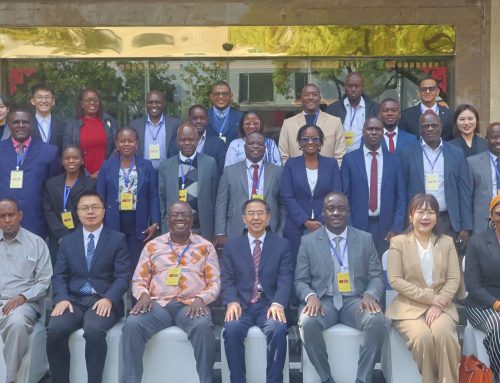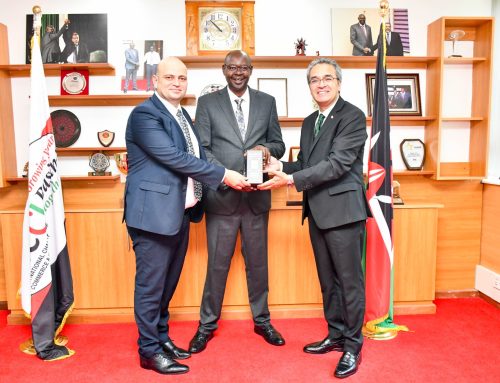
The Kenya National Chamber of Commerce and Industry launched the KNCCI Business Barometer Report Q3/2024 at the Radisson Blu Hotel at Upperhill, Nairobi.
During the panel session, KNCCI President Dr. Erick Rutto noted that out of the submissions that were tabled to the National Assembly Finance Committee on the Finance Bill 2024, 77% of KNCCI’s submissions were adopted on the Finance Bill 2024 (Amended). He informed of the engagement with government regulatory bodies, noting the increase of levies on exporters, with Kenya leading in high rates of the vital statutory fees on exports in the East African bloc.
The Chief Guest, the PS State Department of Investment Promotion, Abubakar Hassan Abubakar commended the good work KNCCI on the unwavering commitment to advancing the interests of the business community. He stated the State Department’s commitment to work closely with KNCCI and other stakeholders to create a conducive environment for business growth. This includes streamlining regulatory processes, enhancing access to finance, and fostering Ban ecosystem that encourages innovation and competitiveness.
Unfavourable taxes and levies (44%) was identified as the main cause of the unfavourable regulatory environment challenge. Speaking on the panel, Kiprono Kitonny, Chairman, Nairobi Securities Exchanges (NSE) noted that the best thing the government can do to the business community is to pay pending bills as it would guarantee commercial vibrancy in Kenya.
In his remarks, KNCCI CEO, Patrick Nyangweso, recognized the significant challenges and opportunities in the business community. He noted the significance of the Business Barometer Report as an instrument to support and empower our members with information they need to decide on resource allocation to improve the business landscape in Kenya.
The education and agriculture sectors are most optimistic about a drop in primary input costs, while hospitality & tourism, and manufacturing are less optimistic. Majority of businesses (69%) are intentionally applying some climate change mitigation and adaptation actions in their business operations. The mining and energy sectors lead in applying climate mitigation and adaptation actions, while the retail and wholesale sector lags behind. Similar to Q2, businesses expect limited financial resources (32%), unfavorable regulations (22%), and supply chain instability (22%) to majorly affect their performance in Q3, high interest rates (31%) and limited access to credit (30%).
Also on the panel were; Elizabeth Kibaki, Senior Private Sector Development Specialist – World Bank, and Rachel Muthoga, Head of Advocacy – Center forInternational Private Enterprise (CIPE).







Leave A Comment